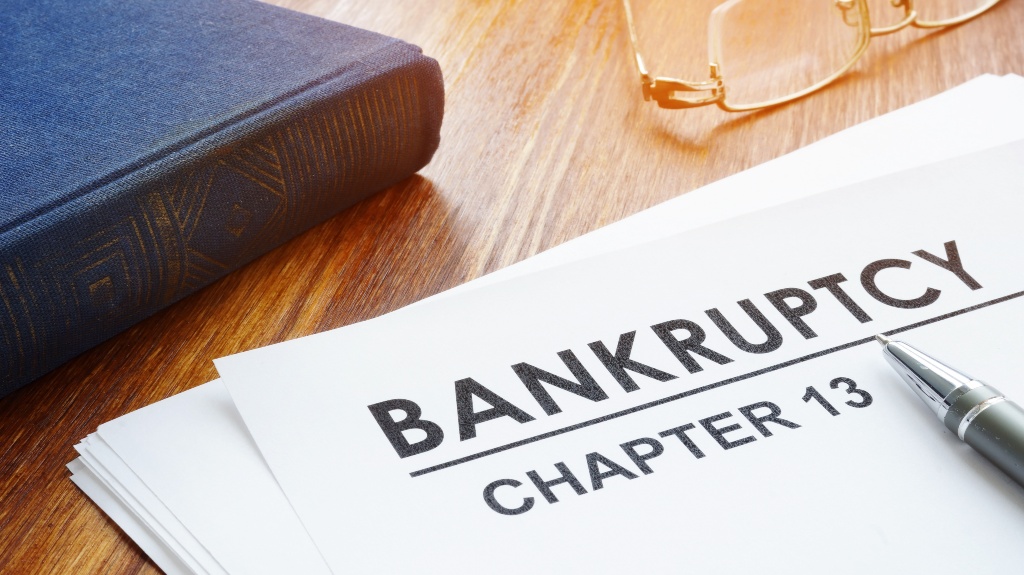Chapter 13 bankruptcy is a process that allows people with regular incomes to develop a plan to restructure their debts and pay them off over time. Unlike Chapter 7 bankruptcy, which involves liquidating assets to pay off creditors, Chapter 13 focuses on restructuring debts and making monthly payments over three to five years. Understanding how Chapter 13 bankruptcy affects homeownership is crucial for homeowners considering this option to determine whether it is the right choice for their situation. In this blog, we will be going over how Chapter 13 impacts homeownership and some important considerations to take into account if you are deciding whether it is the right path for you.

Eligibility Requirements for Chapter 13 Bankruptcy
Chapter 13 is available for anyone who meets these requirements:
- Has a regular income: This can be wage earners, the self-employed, and sole proprietors.
- Has debt: You must have combined secured and unsecured debts of less than $2,750,000 as of the filing date. Unsecured debts are those not backed by collateral, such as medical bills. Secured debts are tied to a specific property, meaning creditors can seize the property if the debt remains unpaid, like mortgages.
- Filed taxes: You must have filed all required tax returns for tax periods ending within four years of filing. You’ll need to submit proof of filing state and federal tax returns.
- Has no previous bankruptcies: You cannot qualify if you filed for Chapter 13 bankruptcy in the past two years or Chapter 7 bankruptcy in the past four years. You also can’t have filed a bankruptcy petition in the previous 180 days that was dismissed.
Impact of Chapter 13 Bankruptcy on Homeownership
When you file for Chapter 13 bankruptcy, your mortgage is treated as a secured debt, which means it is protected. This process allows you to keep your home while reorganizing your debts through a structured repayment plan. The plan typically lasts for three to five years and is designed to help you catch up on any missed mortgage payments while continuing to make your regular monthly mortgage payments.
Potential Advantages for Homeowners
- Avoiding Foreclosure: Chapter 13 bankruptcy can put a stop to foreclosure proceedings and give you a chance to catch up on overdue mortgage payments through the repayment plan.
- Protection of Home Equity: By keeping up with your mortgage and other secured debts through the repayment plan, you protect your home equity from being lost to foreclosure.
- Improved Financial Stability: Completing a Chapter 13 repayment plan can help stabilize your finances, improve your credit score, and overall improve your financial situation.
Potential Disadvantages for Homeowners
- Longer Repayment Period: Chapter 13 bankruptcy involves a repayment plan that lasts between three and five years. This requires a long-term commitment to making regular payments, which can affect your budget.
- Impact on Credit Score: Although Chapter 13 bankruptcy can help you avoid foreclosure, it can still hurt your credit score. The bankruptcy will remain on your credit report for up to seven years, potentially affecting your ability to get new credit or loans in the future.
- Limited Flexibility: The terms of the repayment plan are set based on your income and debt levels. If your financial situation changes, such as a decrease in income or unexpected expenses, it may be difficult to adjust the plan.
How to Start the Process of Filing for Chapter 13 Bankruptcy
- Consult a Bankruptcy Attorney: Schedule a consultation with a bankruptcy attorney who specializes in Chapter 13 cases. They can provide expert advice on whether Chapter 13 is suitable for your situation.
- Complete Required Credit Counseling: Complete a credit counseling course from an approved agency within 180 days before filing. This is a mandatory step and guides you through budgeting and debt management. After completing the course, obtain a certificate of completion to include with your bankruptcy claim.
- Prepare Bankruptcy Documents: Collect all necessary financial documents, including recent tax returns, pay stubs, bank statements, a list of assets and liabilities, and information on your income and expenses.
- File the Bankruptcy Petition: Your attorney will help prepare the bankruptcy petition, including the repayment plan and schedules of assets, liabilities, income, and expenses. File the petition with the bankruptcy court in your jurisdiction. This will initiate the bankruptcy process and provide an automatic stay to halt collection actions against you.
Contact Unruh Law Today
If you’re facing overwhelming debt but want to protect your assets and create a manageable repayment plan, Chapter 13 bankruptcy may be the solution you need. Unruh Law in San Francisco is here to guide you through the Chapter 13 process, offering a personalized approach to help you regain control of your financial future. If you’re considering Chapter 13 bankruptcy in San Francisco, Unruh Law is here to help you navigate the process with expertise and compassion. Contact us today to schedule a consultation and take the first step toward a more secure financial future.
